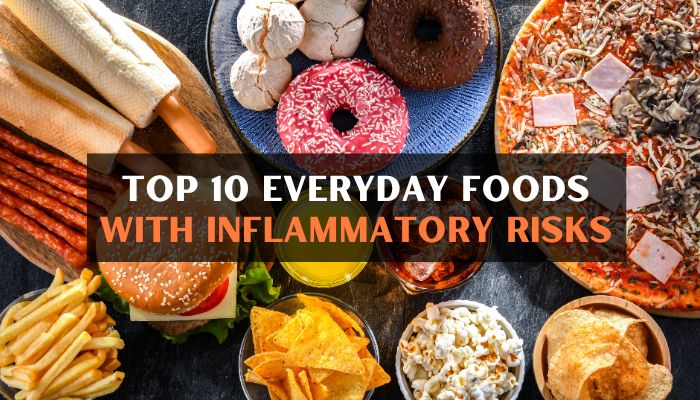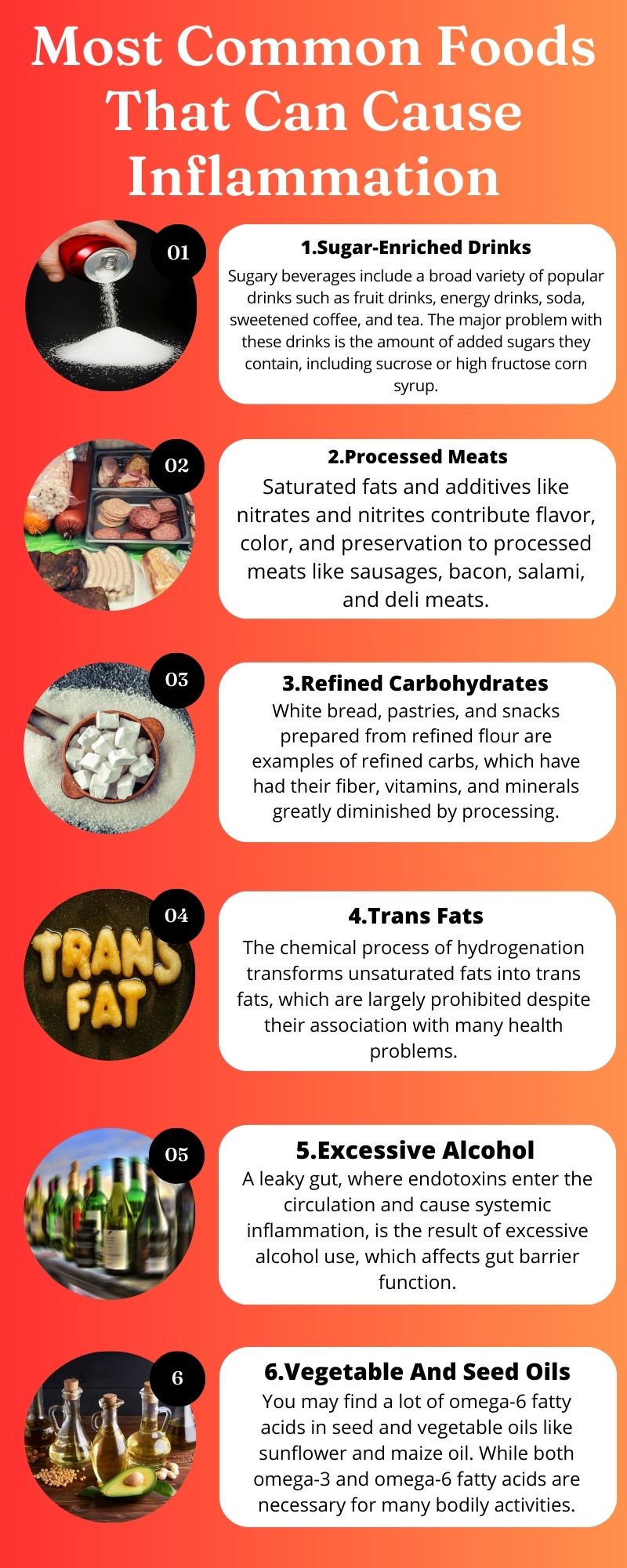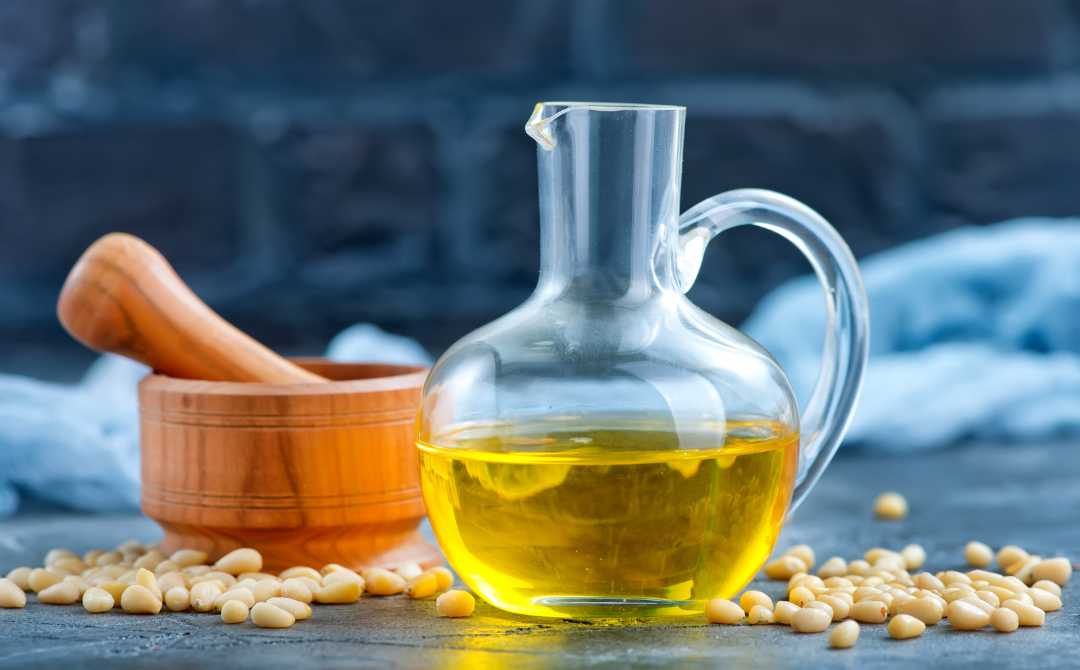Eating right is often regarded as the bedrock of good health, but the complexities of modern conveniences choose inflammatory foods. Here the adage “you are what you eat” takes on additional significance.
Surprisingly, some foods that wear the badge of “healthy” can secretly contribute to inflammation, which plays a role in many chronic diseases.
While inflammation is a natural part of the body’s healing process, chronic inflammation can lead to heart disease, diabetes, and other conditions. Emerging research suggests that diet significantly impacts inflammation levels, and sometimes, the culprits are foods you’d least suspect.
Inflammation and nutrition are complicated topics, and we’re here to help you make sense of it all. With the help of San Diego Personal Trainers, and the information we provide, you will be able to make educated dietary choices, which will lead to a healthy life.
The Surprising Truth About ‘Healthy’ Foods: Inflammation Risks
Science is always illuminating how certain foods affect our bodies, so the conversation surrounding healthy eating is dynamic and ever-changing. Even foods that are widely lauded for their health advantages can occasionally have unforeseen consequences on our bodies, which is something that gets overlooked a lot.
As an example, consider the wide category of whole foods, which are often praised for their abundant nutritional profiles. The foundation of a healthy diet is whole foods, but how those foods interact with our biology is what matters.
For example, some people may experience an inflammatory reaction to gluten, which is present in a lot of whole grains, or to the sugars that naturally occur in fruits.
When considering contemporary techniques for food preparation, the complexity level rises. It is possible to change the health benefits of an item that is initially rich in nutrients. A food’s inflammatory potential can be influenced by its packaging, additives, and preservatives.
Keeping an eye on new studies and committing to a balanced diet are necessary for understanding and negotiating these nuances.
The notion of ‘healthy’ cannot be generalized; rather, it calls for an individualized strategy that takes into account how people’s bodies react to different foods.
The 10 Most Common Foods That Can Cause Inflammation
Many people who are trying to improve their health via food are going to be surprised to learn that common meals can cause inflammation.
Here, we will identify common foods that are known to have inflammatory hazards:
1. Sugar-Enriched Drinks
Sugary beverages include a broad variety of popular drinks such as fruit drinks, energy drinks, soda, sweetened coffee, and tea. The major problem with these drinks is the amount of added sugars they contain, including sucrose or high fructose corn syrup.
Consumption of these added sugars can hasten the development of insulin resistance by rapidly raising blood glucose and insulin levels. There is a strong correlation between low-grade systemic inflammation and chronic insulin resistance.
A larger metabolic byproduct, uric acid, can also be produced by an increase in sugar consumption. Gout, an inflammatory arthritic disease characterized by severe joint pain and inflammation, can develop when there is an excess of uric acid in the blood, which is known to cause inflammation.
2. Processed Meats
Saturated fats and additives like nitrates and nitrites contribute flavor, color, and preservation to processed meats like sausages, bacon, salami, and deli meats.
Evidence suggests that saturated fats activate inflammation in adipose tissue, which in turn increases the risk of insulin resistance, atherosclerosis, and cardiovascular disease.
Some plants contain nitrates and nitrites naturally, and our bodies also create them. However, when these additions are employed in high-temperature cooking methods, such as frying or grilling, they become troublesome. These chemicals can transform into nitrosamines, which are known to cause inflammation and may even play a role in carcinogenic processes.
Processing meats sometimes have a lot of salt, which can cause you to retain water and raise your blood pressure. This puts extra strain on your cardiovascular system and adds to the inflammatory cascade.
3. Refined Carbohydrates
White bread, pastries, and snacks prepared from refined flour are examples of refined carbs, which have had their fiber, vitamins, and minerals greatly diminished by processing. They have a high glycemic index (GI), which means that they quickly raise insulin and blood sugar levels.
These surges enhance the synthesis of advanced glycation end products (AGEs), which in turn stimulate oxidative stress and inflammatory pathways; as a result, they can exacerbate obesity, type 2 diabetes, and chronic inflammation.
4. Trans Fats
The chemical process of hydrogenation transforms unsaturated fats into trans fats, which are largely prohibited despite their association with many health problems. Some fried and baked items include trans fats, which promote atherosclerosis by increasing “bad” LDL cholesterol and decreasing “good” HDL cholesterol.
Due to their detrimental effect on the vascular cell lining, they are also linked to increased inflammation, insulin resistance, and an increased risk of heart disease.
5. Excessive Alcohol
A leaky gut, where endotoxins enter the circulation and cause systemic inflammation, is the result of excessive alcohol use, which affects gut barrier function.
Furthermore, this intake can lead to dysbiosis, an imbalance in the makeup of gut microbes, and the production of harmful metabolic byproducts, which can aggravate liver inflammation and illness. The body’s inflammatory reaction must be kept in check by drinking alcohol in moderation.
6. Vegetable And Seed Oils
You may find a lot of omega-6 fatty acids in seed and vegetable oils like sunflower and maize oil. While both omega-3 and omega-6 fatty acids are necessary for many bodily activities, an imbalance in the former can lead to inflammation if omega-3 fatty acids are not adequately consumed. This is because omega-3 fatty acids are involved in the synthesis of arachidonic acid, an inflammatory compound.
7. Artificial Sweeteners
So many “diet” and “sugar-free” items include artificial sweeteners, including aspartame. While they’re calorie-free, there’s some evidence that they could cause inflammation in the body. Aspartame can induce inflammation, hence it should be avoided by anyone with sensitivities or allergies, including those with phenylketonuria, a rare metabolic condition.
8. High-Fat Dairy Products
Dairy products are a good source of calcium and vitamin D, but they can also be inflammatory, particularly for people who are sensitive to saturated fats.
Fatty milk, full-fat cheese, cream, ice cream, butter, and other dairy products are examples of such sources. These types of food may also cause an inflammatory immunological response in those who are lactose intolerant or allergic to milk.
9. Red Meat
An increased risk of inflammation has been associated with a diet heavy in red meat, which includes hog, lamb, and beef. One possible explanation is that red meat has a lot of saturated fat and certain proteins.
Some people may have chronic inflammation due to the inflammatory response triggered by compounds like Neu5Gc and endotoxins found in red meat, especially when taken in large quantities.
10. Refined Oils And Margarine
Like vegetable and seed oils, these items are rich in omega-6 fatty acids and are commonly found in processed meals. Because they disrupt the delicate equilibrium between omega-6 and omega-3 consumption, refined oils and margarine produced from these oils can intensify inflammatory states.
Excessive consumption of these foods can cause inflammation, which in turn can drive chronic illnesses such as metabolic syndrome and heart disease.
How A Personal Trainer Can Help In Making Right Food Choices?
Dietary changes to reduce inflammation might be challenging, but anybody can learn to make tasty and healthful food choices with the correct information.
A personal trainer in San Diego could prove useful in this situation.
The complex relationship between food and exercise, and how the two might work together to reduce inflammation, can be better understood with their guidance. When it comes to maintaining a healthy physique, strength and endurance in the muscles are essential.
A personal trainer can help you gradually make sure that your food choices promote muscle growth rather than inflammation.
Take A Way
Inflammation, a fundamental component of several long-term illnesses, can be worsened by consuming certain meals and components.
To promote a better, more balanced diet, it is essential to identify and limit the intake of certain items that may cause inflammation.
Search for a Personal Trainer Near Me for the best help and advice.







